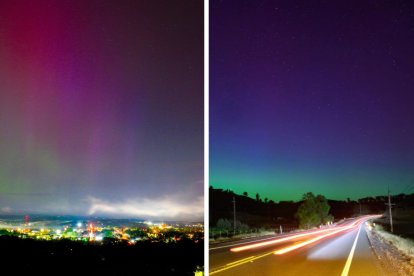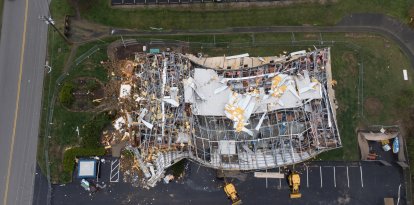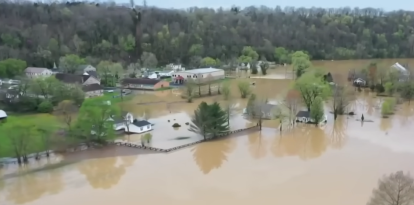The strongest geomagnetic storm in 20 years fills the country's skies with auroras
Authorities warn that there could be blackouts and interruptions in communications.

(AFP / Cordon Press)
The Space Weather Prediction Center classified this weekend's geomagnetic storm as "extreme." With Friday's rating, it is the first Category 5 storm since October 2003.
On Friday night, different parts of the country were lit up with northern lights, including cities like Chester, South Carolina, and towns like Metuchen, New Jersey. The same thing happened in northern Europe and in countries in the southern hemisphere such as Argentina, Australia and New Zealand.
Mathew Owens, a professor of space physics at the University of Reading, in the United Kingdom said, "Go outside tonight and look would be my advice because if you see the aurora, it's quite a spectacular thing." Those who did not see the auroras on Friday night may be able to see them over the next two nights (although with less intensity).
For improved visibility of the auroras, experts recommend heading to locations with minimal light pollution, away from the bright artificial lights found in densely populated areas. Additionally, they advise capturing photographs or videos of the sky even if the auroras are not visible to the naked eye, as the sensors in cameras and recording devices are more sensitive than they human eye and can detect faint auroral activity more effectively.
On a clear day, sunspots could be observed but be sure to use eye protection.
All of the above depends on your geographical coordinates, other weather conditions (such as cloud cover at night) and the intensity of the geomagnetic storm.
Warnings
The most powerful solar storm in 20 years comes with risks. The last time such a phenomenon occurred, there were blackouts in Sweden and the energy infrastructure in South Africa was damaged.
Magnetic fields could cause blackouts. High-frequency radio communications and GPS systems (as well as the natural compass of some animals, such as pigeons) may also be affected.
Elon Musk reported that his company Starlink's satellites in orbit (about 7,500) are "under a lot of pressure," but are "holding up so far."
The government announced earlier this week that different agencies and departments are working together to respond to possible impacts, The authorities recommended that the population take precautions in case blackouts occur. They recommend keeping flashlights and radios on hand.
RECOMMENDATION





















